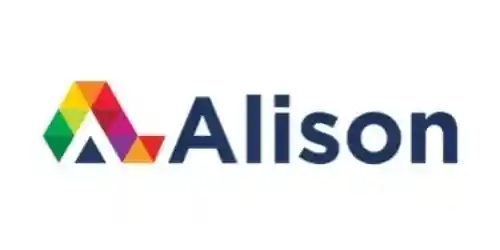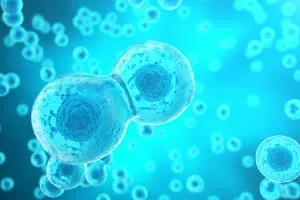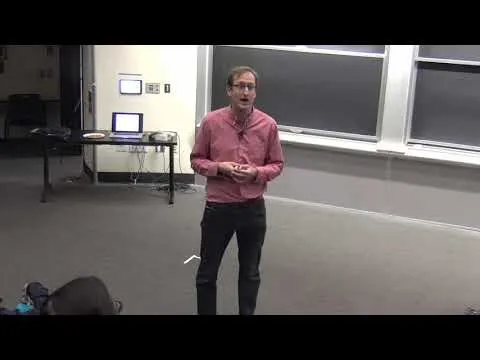
Diploma in Genetics and Evolution through Biological Anthropology 
Discover the fascinating world of genetics and evolution through the lens of biological anthropology with our Diploma in Genetics and Evolution course. Delve into the four areas of anthropology before focusing on the captivating field of biological anthropology. Uncover the importance of genetics in understanding evolution and explore basic genetic concepts such as DNA and chromosomes. Dive into the history of evolutionary thought and learn about microevolution, macroevolution, and the relationship between genetics and cultural practices. Don't miss this opportunity to gain a deeper understanding of evolution and earn your diploma today! ▼
ADVERTISEMENT
Course Feature
![]() Cost:
Cost:
Free
![]() Provider:
Provider:
Alison
![]() Certificate:
Certificate:
No Information
![]() Language:
Language:
English
Course Overview
❗The content presented here is sourced directly from Alison platform. For comprehensive course details, including enrollment information, simply click on the 'Go to class' link on our website.
Updated in [September 26th, 2023]
What does this course tell?
(Please note that the following overview content is from the original platform)
We begin this diploma course by introducing you to the field of Anthropology, which studies human behaviour. Anthropology has four areas. We will research these fields and then focus on Biological Anthropology. Biological Anthropology explores many topics, including the study of genetics and evolution, which is the focus of this diploma course. We have provided two classes in one: you will study both genetics and evolution. Why is genetics so important to learn? To understand evolution and how it works, you first need to understand genetics.
We teach you basic genetics concepts in the first half of this course, including deoxyribonucleic acid (DNA) and chromosomes. We then investigate both Mendelian and non-Mendelian genetics. We outline the genetics of several human traits and diseases. The second half of this course examines evolution. We study the history of evolutionary thought and learn about microevolution and macroevolution. Then, we analyse how genetics can help us understand human evolution. We concentrate on what genetics can tell us about neanderthals, one of our closest relatives. We consolidate the relationship between genetics and cultural practices and explain how culture influences evolution. Finally, we observe some examples of contemporary human evolution.
Some people think that evolution means that humans evolved from monkeys. But they are mistaken. Take this free online diploma course and find out what evolution really is and how it works! Please note: this course does not focus on proving evolution. If you are against the idea of evolution and don’t want to learn about it, then this course is not for you. However, if you’re curious about evolution and how it works, enrol in this course right away and earn your diploma today!
We considered the value of this course from many aspects, and finally summarized it for you from two aspects: skills and knowledge, and the people who benefit from it:
(Please note that our content is optimized through artificial intelligence tools and carefully reviewed by our editorial staff.)
What skills and knowledge will you acquire during this course?During this course, students will acquire the following skills and knowledge:
1. Understanding of the field of Anthropology and its four areas, with a focus on Biological Anthropology.
2. Knowledge of basic genetics concepts, including DNA and chromosomes.
3. Understanding of both Mendelian and non-Mendelian genetics.
4. Familiarity with the genetics of various human traits and diseases.
5. Knowledge of the history of evolutionary thought and the concepts of microevolution and macroevolution.
6. Understanding of how genetics can help us understand human evolution, particularly in relation to neanderthals.
7. Awareness of the relationship between genetics and cultural practices, and how culture influences evolution.
8. Familiarity with examples of contemporary human evolution.
9. Clear understanding of what evolution really is and how it works, dispelling misconceptions about humans evolving from monkeys.
Who will benefit from this course?
This course will benefit individuals who are interested in studying human behavior and have a specific interest in genetics and evolution. It is particularly relevant for those pursuing careers in biological anthropology, genetics research, evolutionary biology, or related fields. Professionals in healthcare, such as doctors or genetic counselors, may also find this course beneficial in understanding the genetic basis of human traits and diseases. Additionally, educators and science enthusiasts who want to deepen their knowledge of genetics and evolution will find value in this course.
Course Syllabus
Introduction to Anthropology
In this module, you will be introduced to the discipline of Anthropology and its four fields. You will also learn why it is important to study genetics and evolution.Basic Concepts in Genetics
In this module, you will be introduced to basic concepts in genetics, including cells, DNA, and chromosomes. You'll also learn about the processes of mitosis and meiosis.Mendelian Genetics
In this module, you will be introduced to Mendelian Genetics. This will include the concepts of homozygous and heterozygous, dominant and recessive, and sex-linked inheritance. You will also learn how to create Punnett Squares and pedigrees.Non-Mendelian Genetics
In this module, you will be introduced to non-Mendelian genetics. You will learn about the concepts of incomplete dominance, codominance, and penetrance. In addition, you will learn about polygenic inheritance, mitochondrial inheritance, and pleiotropy.Human Genetic Variation
In this module, you will be introduced to human genetic variation. First, you will learn about the concept of heritability. Next, you will learn about the genetics of height and weight. Then, you will learn about the genetics of handedness. Finally, you will learn about lactase persistence and alcohol intolerance.Human Genetics & Disease
In this module, you will be introduced to the genetics of some human diseases. First, you will learn about ABO Blood Groups and their relationship to diseases. Next, you will learn about sickle cell anemia. Finally, you will learn about type 2 diabetes.First Assessment
In this module, you will take your first assessment. This assessment enables you to review your learning, so you can determine your knowledge and understanding of Chapter 1 from the following course: Understanding Genetics and Evolution Through Biological Anthropology.Introduction to Evolutionary Thought
In this module, you will be introduced to the history of evolutionary thought. You will learn about ideas that had to change in order for the idea of evolution to be accepted. You will also learn about Charles Darwin and the theory of natural selection.Microevolution
In this module, you will be introduced to the concept of microevolution. First, you will more about the theory of evolution. Then, you will learn about evolution and mutations. Finally, you will learn about gene flow, genetic drift, and founder effect.Macroevolution
In this module, you will be introduced to the concept of macroevolution. First, you will learn about the concept of species. Next, you will learn about speciation, which is the creation of new species. Then, you will learn about the tempo of speciation. Finally, you will learn about the Hardy-Weinberg Equilibrium.Genetics & Human Evolution
In this module, you will be introduced to genetics and human evolution. First, you will learn about how ancient DNA can be used to study evolution. Then, you will learn about mitochondrial DNA and human evolution. Next, you will learn about the Y chromosomes and human evolution. Finally, you will learn about autosomes and human evolution.DNA and Neanderthals
In this module, you will be introduced to DNA and Neanderthals. First, you will learn about who the Neanderthals were. Then, you will learn about Neanderthal DNA. Finally, you will learn about the disappearance of the Neanderthals.Contemporary Human Evolution
In this module, you will be introduced to contemporary human evolution. First, you will learn about what genetics can tell us about cultural practices. Then, you will learn about how cultural practices can affect evolution. Finally, you will learn about if humans are still evolving.Second Assessment
In this module, you will take your second assessment. This assessment enables you to review your learning, so you can determine your knowledge and understanding of Chapter 2 from the following course: Understanding Genetics and Evolution Through Biological Anthropology.Course assessment
Course Provider

Provider Alison's Stats at AZClass
Discussion and Reviews
0.0 (Based on 0 reviews)
Explore Similar Online Courses

ABA Treatment for Parents Teachers Psychologists Students

Diploma in Biology

Python for Informatics: Exploring Information

Social Network Analysis

Introduction to Systematic Review and Meta-Analysis

The Analytics Edge

DCO042 - Python For Informatics

Causal Diagrams: Draw Your Assumptions Before Your Conclusions

Whole genome sequencing of bacterial genomes - tools and applications

12 Genetics 1 : Cell Division & Segregating Genetic Material
![[LIVE] Learn Genetic Engineering - Part 1: How does it work?](/ccsimg/dcs/img_tools/6b8f615b15bbd31a67f1880c9bd53dd0.webp)
[LIVE] Learn Genetic Engineering - Part 1: How does it work?


Start your review of Diploma in Genetics and Evolution through Biological Anthropology